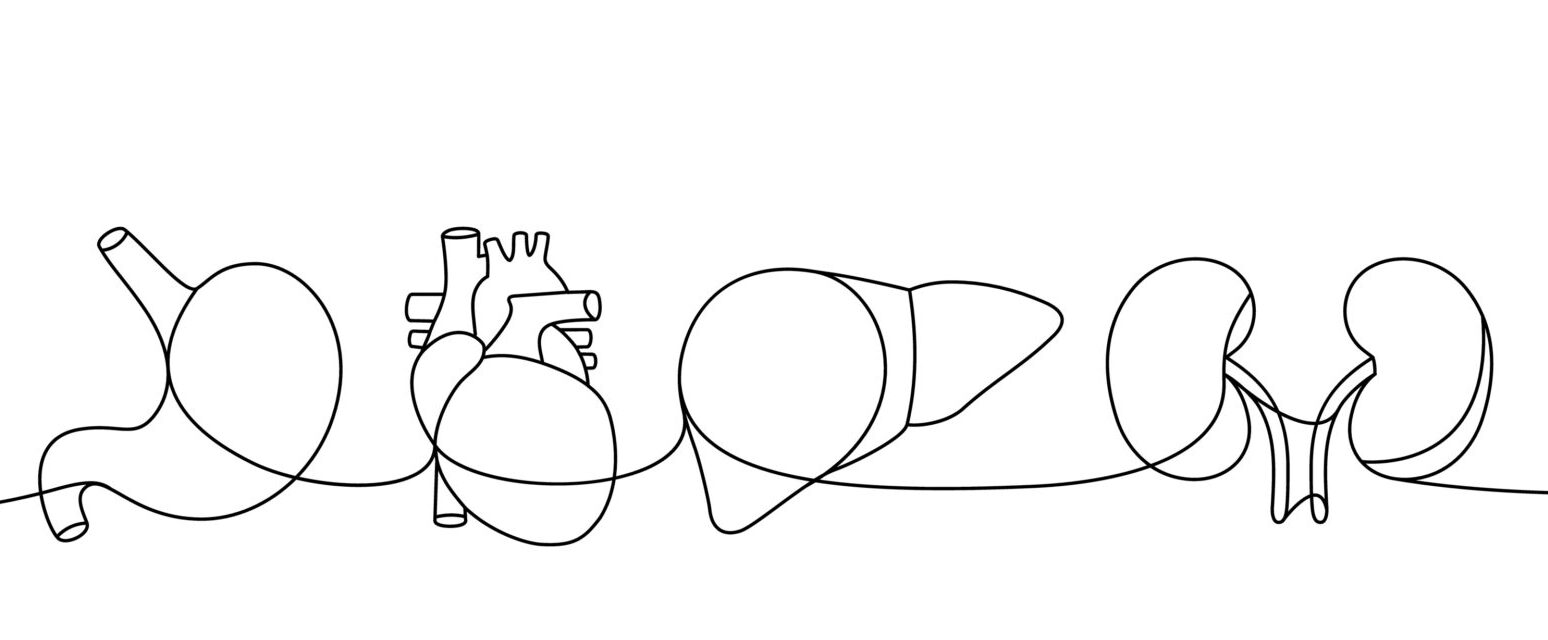Organ Transplantation: An Ethically Efficient Future – Part 2
Posted on 1st March 2024 by Madhura Joshi

This blog is the second in a series of 3 blogs, exploring the policy decisions of three different countries in respect to organ transplantation. Go here for Part 1.
Global Examples
India
Various countries around the world have their distinct rules for governing the process of organ transplantation. Organ transplantation in India is governed by the Transplantation of Human Organs Act, 1994 and the Transplantation of Human Organs Rules, 2014. The act covers all the aspects of organ transplantation namely- procurement, removal, storage and transplantation of organs.
Under this act, organ transplantation can only happen at a registered hospital which has all the required infrastructure and trained medical personnel who are allowed to carry out the transplant procedure. The act also states that live organ donors, such as that of a kidney or liver, can only donate to their close relatives, and cadaveric donations cannot happen without the written consent of the next kin.
Commercial dealings of any organs are strictly prohibited and punishable under law in India. India also recognises brain stem death as a legal death which then leads to cadaveric donations. India thus follows an opt-in method whereby people voluntarily sign up for donating their organs.
Spain
Spain, on the other hand, has an opt-out system for organ donation which defaults every Spanish citizen as an organ donor unless they opt-out in writing. This system is seen as a popular model for significantly increasing the number of available cadaveric donors. Spain’s Organización Nacional de Trasplantes (ONT, which is Spain’s National Transplant Organization) maintains an extensive database and coordinates the mammoth task of communicating with the 189 hospitals throughout the country that can extract organs, to find out where in the country organs are available and where they are needed the most. Out of these 189 hospitals, 44 are able to facilitate transplants.
The ONT thus helps with the ‘efficient allocation’ of organs from the donors to the recipients. Unlike several countries, Spain also allows older donors to donate their organs which thus increases the pool of donors. Physicians and nurses working in critical care units are tasked with the job of being Transplant Representatives who bring up the possibility of organ donation to the relatives of the patients, thus making it much more likely that they will consent to donating their relative’s organs in the event of death.
Iran
And while the two examples above have altruistic origins, Iran implements something different. In 1988, a ‘compensated and regulated living unrelated-donor renal transplantation program’ was adopted in Iran. A ‘donor’ meets their recipient- this match is coordinated by the Iranian Kidney Patient’s Foundation who, apart from coordinating the match, also facilitate medical assessment before the transplant, consent and the monetary transaction.
When things go wrong
Sometimes, public policies go wrong. Brazil tried implementing the opt-out model (as per Spain), but the government reverted back to the opt-in method after just one year. The Brazilian government was accused of ‘snatching’ bodies from the kin of the deceased for conducting the transplants, citing the reason as incomplete documentation of the deceased’s opt-out decision even if the kin chose not to proceed with the donation. This enraged the public and led to widespread protests.
The single biggest issue for transplanting organs is that of organ trafficking. The need for trafficking organs is said to arise from the shortage of available donated organs in the first place. Organs like kidneys and liver can be donated by living donors which has paved the way for an exploitative parallel organ economy.
A shocking study conducted in India revealed that women kidney ‘sellers’ outnumber their male counterparts. The money that is earned after selling these organs is used to repay debt and to finance weddings, medical expenses, child’s education, and in many cases it is used up by the husbands to finance their stocks of alcohol. The money earned after selling these organs is also meager, with the middlemen under-compensating the ‘sellers’ against the prices that were promised earlier.
The poor donors also have next-to-zero access to the follow-up treatment that is required to maintain their health after donating an organ. The recovery period after donation is about 6 weeks, but since the poor who ‘donate’ organs are highly likely to be employed in daily-wage jobs, they do not get the chance to rest and recover before going back to work, which poses a great risk to their health. Psychological recovery is as important as physical recovery after donating an organ, and since these poor donors have never had any access to it they suffer from post-surgery trauma. And while this study is an example from India, these issues have been a global phenomenon.
What happens next?
These issues thus highlight the urgent need to address the shortfalls, and consider the diverse global approaches which have produced evidence of their effectiveness, which might include potential solutions. Economics has also gifted us with some very interesting potential solutions, all of which will be highlighted in the next blog post.


